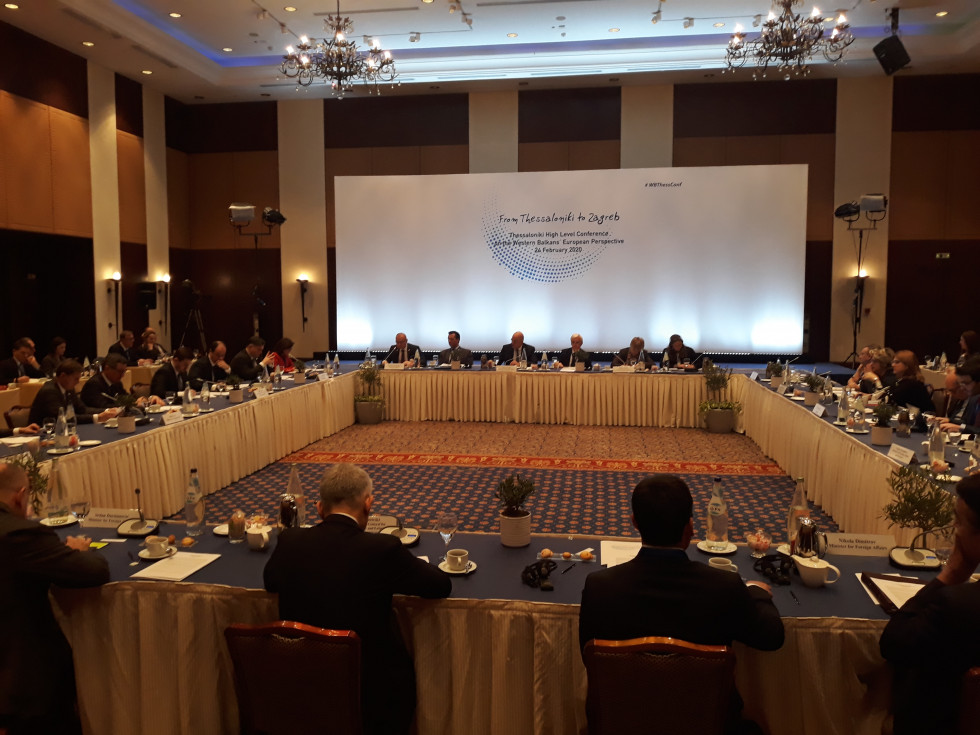Minister Dr Cerar advocates the launch of accession negotiations with North Macedonia and Albania this March
- Ministry of Foreign Affairs
The meeting is aimed at offering support to the region upon the enlargement hiatus and providing new impetus to the European perspective of the Western Balkans in the light of drafting the new enlargement methodology and the May EU-Western Balkans summit in Zagreb.
In his address, Minister Cerar reaffirmed “the geostrategic importance of the Western Balkans for the EU” and drew attention to “the necessity of thorough reforms, especially in relation to the rule of law and the fight against corruption and organised crime in the region.” According to Slovenia, progress in both areas is closely linked to ensuring the conditions for faster socio-economic development.
In the discussion about negotiations and about a more effective enlargement methodology, Minister Cerar advocated for “launching accession negotiations with North Macedonia and Albania in March, which, according to Slovenia, will provide clear proof that the EU’s new enlargement methodology indicates a serious commitment.” The Minister also warned that the EU integration process should be matched to the progress in the introduction of reforms. When discussing the enlargement, Slovenia highlights the significance of preserving the European perspective as an extremely important motivation for future reforms, addressing outstanding issues, reconciliation, stability, and resilience against third parties. As far as the enlargement methodology is concerned, Minister Cerar emphasised the effectiveness of the enlargement process as well as proactiveness in the region in achieving both the economic connectivity within the region and regional cooperation.
The conference titled ‘From Thessaloniki to Zagreb’ builds on a series of events: the 2000 Western Balkans summit in Zagreb, held at a time when democratic change was sweeping the region, which enabled the conclusion of stabilisation and association agreements with the EU, following the example of the European agreements for Eastern Europe, and the 2003 European Council in Thessaloniki, which was a logical upgrade of the 2000 conference and sent a clear message testifying to the EU’s commitment to the Western Balkans in the wake of the great EU enlargement in 2004. In accordance with the conclusions of the European Council last October, EU leaders should revisit the issue of enlargement before the EU-Western Balkans summit in Zagreb in May 2020.


